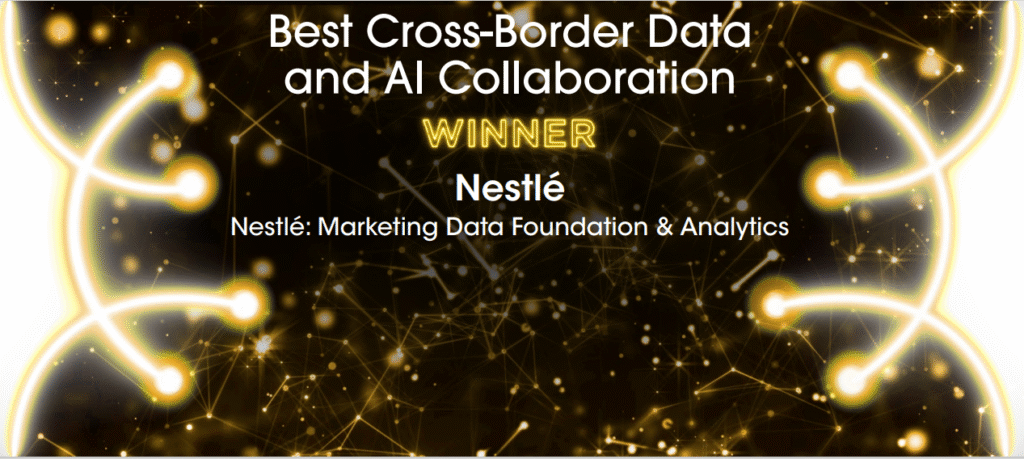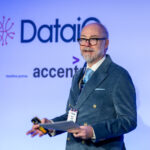Operating at a truly global scale, Nestlé has delivered a masterclass in cross-border collaboration. Through its Marketing Data Foundation and Analytics (MDFA) programme, the company has re-engineered how marketing data is captured, shared, and activated across 185 markets. For this achievement, Nestlé has been named winner of Best Cross-Border Data and AI Collaboration at the 2025 DataIQ Awards.
This award celebrates organisations that excel in bringing together people, processes, and platforms across geographies to deliver a shared data and AI capability. The judges agreed that Nestlé’s MDFA stands out for its sheer scale, discipline, and measurable impact that has turned fragmented data into a strategic asset for 12,000 marketers worldwide.
“Nestlé has not just connected markets. It has standardised how a global business thinks about and uses data. The outstanding results speak for themselves.” – Judges’ comments
From Fragmentation to Foundation
Before MDFA, each market and category team managed marketing data independently. The result was duplication, variable maturity, and millions spent on technology that could not scale globally. Nestlé’s ambition was to change this by creating a single marketing data foundation: a common structure to enable standardised reporting, advanced analytics, and AI use cases worldwide.
The foundation now ingests data from over 11,000 ad accounts across 21 sources, harmonised through a universal taxonomy and unique campaign identifier (NCID). This system allows campaigns to be tracked seamlessly across regions and platforms, enabling for the first time global consistency in measurement and optimisation.
Collaboration Enforced by Design
Cross-border collaboration at this scale demanded not just new tools but new behaviours. Nestlé embedded compliance into its commercial model: agencies and partners must adhere to data standards or face penalties. More than 1,000 marketers and partners have completed dedicated training on these standards; an achievement underpinned by shared accountability between marketing, procurement, and technology teams.
To sustain quality, Nestlé has also deployed AI agents that automatically detect and fix data quality issues, reducing workload for data stewards by 30% and maintaining a 96% data accuracy rate globally.
Impact at Scale
The payoff is striking. Reporting is now 14 times faster, saving 77,000 hours of manual work annually, while automated checks have identified $24 million in media inefficiency, funds that have been reallocated to higher-performing campaigns. The programme has set a new operational benchmark for how a global organisation can standardise, automate, and govern data across borders.
Looking Ahead
With a unified foundation in place, Nestlé has established the infrastructure for true AI-driven marketing at global scale. The next phase extends beyond reporting into predictive modelling and always-on optimisation—proving that collaboration, when backed by structure and standards, can transform not just efficiency but creativity across markets.





